Life is an unfolding, it couldn't have happened any other wayIt used to be mind-boggling to me that despite all the efforts humans make in their life time, so few ever seem to really change at fundamental levels of habits, such as relationships with food, with other people, with themselves. I remember reading that comic strip Cathy and thinking, "who are these crazy people who keep saying they are going to have more self control and never do?" I remember thinking, "but I’m going to be different. I am going to change." Many years later, and I am blown away by anyone who manages to change even one central habit. As I see it now, you don’t expect a leopard to will itself to become a fox, why would you expect a carefully designed human with processes going on we haven’t yet even begun to understand, to easily change itself, with its own self? Do we ask a red paintbrush to turn itself purple? It would at the very least need something outside itself, a blue paint brush, to do that. But here I’ve been thinking I could just will myself to become an entirely different person than I had developed into, on my own no less, ultimately overestimating the power of the mind and underestimating the power of the body. That "One Thing" That Will Change it AllI had an inspiration the other day, a subtle but significant shift in perspective about something I’ve been trying to work through for over thirty years, and I thought to myself, “Oh my gosh. This is it. This is the shift in perspective that’s going to change my life.” And then I thought about all the times I’ve had that thought - that I'd found the answer - and it didn’t change anything at all. And even if this time it was the thing that changed my life, that doesn’t mean it’s going help anyone else, which is like half the fun in discovery, right? Being able to help others is what makes it all feel meaningful and worthwhile. But the chances of a personal epiphany impacting someone else in the same profound way it did me are exceedingly small. This is not to say that breakthroughs aren't worth sharing, or to devalue the small but important differences sharing could make for others, or to discourage attempts to change. It’s to say that it’s time to get real about how much goes into the changes that occur in a person's life, and how little we understand them. The stories of zero to hero, from rags to riches, that get exalted in the media, in bestselling books and award-winning movies, make it seem like there’s this “one thing” that can change the trajectory of a person’s life. And we think that it could do the same for us—in a single lifetime no less. But evolution takes time, iterations, trial and error. It’s really only when we look back that we imagine we see the cause and effect on our path; and even then, it’s just one path, one way of unfolding. So many factors influence where, when, and how a life transforms - how a life that feels out of sync and misaligned with one’s true nature, one riddled and controlled by trauma, can shift to a life of flow and integrity with a deeper empowered truth. Long before we were born, things were set in motion for the life in which we find ourselves now. There’s actual momentum behind the generational patterns that live in the bodies we are born into, showing up in our nervous system development in utero, early childhood experiences, genetics, predispositions, disabilities, class heritages, ancestral traumas. Any one of which can take near-heroic efforts to alter or redirect. Then there are the small decisions we’ve made over decades on our own personal timeline, all influenced by these things already set in motion, reinforcing them. And there’s the environment in which we find ourselves, in this very moment, constantly feeding back to us the decisions made by a past version of ourself, further perpetuating the current state of affairs. There’s the present biological stage we’re in, hormones influencing our brain chemistry that can work for or against us in terms of breaking patterns. There’s timing—which skills or personality types society values and predisposes one to success changes over time. Not to mention the built-in societal structures that further reinforce the status quo. There are so many things at play, most of which we have absolutely no control over nor inadequate cognitive awareness of to know how to control. I’d be remiss to chalk up one’s lot in life to chance or luck, but it’s absurd to think we are so almighty powerful that we can turn it all around in a single moment, or even a single lifetime, let alone with a single inspiration, book, self-help curriculum, or philosophy. Don't let anyone tell you you're being negative if you say you feel the odds are stacked against you - but also, don't give up, because the odds may be stacked for you in ways you just can't see yet. On the one hand, it is only in the present moment that anything ever happens. The present moment is where our point of power resides, where we may set ourselves in a new direction with new daily actions. It is the only time that our entire experience of the world can change—right now, in this moment. But all the little things that led up to this moment and how they worked together to create our current presence of mind (how present our wired in nervous system allows us to be to make mindful choices) and our way of impacting the environment, are far beyond our comprehension. Our personal actions only make up a fraction of time, a few decades out of millennia of evolution and generational patterns. Add into that all the biochemical processes going on that our brain is not conscious of, and you’ll see why I am wary of self-help teachers who proclaim to know “the answer,” something that guarantees to set you free. The perfect combination of conditions that will result in the transformation you so desperately desire, the healing that finally allows you to unabashedly be who you are, cannot be predicted or manufactured in real life with certainty. It may seem like we’re in charge of whether we change; it may seem like we have choices. But what compels us to know when and how to make those choices, or to even know what choices are available to make? It’s all speculation—what causes what. Yet so often, when someone undergoes a transformation that allows them to turn their life around, to be “successful” or true to themselves, they’re inclined to reverse engineer the steps they took to get there and share it with others as if it will work for them too. Their intentions are often genuine, but misled, for they leave out generations of evolution and untold variables that contributed to their own transformative moment. And that’s a problem. This is my core issue with the coaching and self-help industry. It’s more complicated than many of the authors make it sound, leading the consumers to feel like failures when their attempts to model after their advice fail. Theoretically, anything is possible – sure, a life can shift toward a new trajectory in a single moment, but when and how that moment happens is simply unknowable. How can the brain predict itself when it is part of the very nature it’s trying to predict, and when nature is constantly unfolding? No, it isn't all anarchy. And this doesn’t mean we don’t have an impact on our lives and environments with our moods and actions moment by moment. But what determines what mood we’re in? They’ll tell you it’s your thoughts, but I’m here to tell you it’s not. It’s more than that. It’s what you ate yesterday, who you talked to last week, the state of your nervous system, your age, your wiring, your genes, your ancestors—the unprocessed trauma fighting to break free and emerging whenever it pleases. It doesn’t mean that our focus doesn’t influence our path in life. You spend 10,000 hours practicing a skill, you are bound to master it. But what determines what we wind up focusing on? How much meditation is required to go from confusion to the clarity and presence of mind to make good decisions at particular moments in time that set us on that new path that breaks generations of self-defeating patterns that in themselves are part of the evolution? I believe these things are unknowable, different for everyone, and mostly out of our control. Now you may be asking: how is it helpful to acknowledge how little control we have over our lives, despite being responsible for each moment? More knowledge is not what we want. We want more peace, more love, more power over our lives, not less. Well, if you had said this to me when I was in my twenties – that the chances are next to nil that I will break free from my negative ancestral patterns by the time I was thirty-five, I would have gone ballistic. Not because life would be meaningless if everything were preordained, but because my life would be too painful if I was destined to follow any more in my tragic ancestors’ footsteps. But over a decade later, this new perspective of things not all being in my control is now the thing that keeps me wanting to live. I no longer believe a simple set of decisions could have changed it all around. That’s like tracing back the way a flower bloomed and whether it became a rose or an iris to some simple set of instructions you could change with the attention of the conscious mind! No, it was my entire way of being that got me here. And my entire way of being is far more nuanced and complex than a set of instructions in a book, or decisions my conscious brain can manufacture, let alone a set of positive thoughts..  When I woke up one day to see I was living so many aspects of life I had so desperately feared, it hurt just as badly as I had imagined it would. But I made it through to the other side which is where the freedom resides. What if my fears hadn’t been irrational? What if my fears didn’t lead to a self-fulfilling prophecy like people who preach law of attraction stuff would lead you to believe, but rather were my gut instinct, knowing I’d experienced such severe trauma in my early childhood that destined me to walk a grueling path before I developed the nervous system capacity to slow down enough to figure out what's really right for me? While I may have felt empowered in my twenties thinking I had absolute control over the ultimate direction of my life, perhaps the naive approach I took then was so delusional that it thwarted my ability to access my inner power? And perhaps that initial delusional approach was also an essential part of the path for it gave me hope, albeit a false one. There’s just so much that we cannot see or even grasp. When you think of all the processes going on in our bodies, so many that our conscious minds aren't controlling, it starts to make sense when people talk about the wisdom in our bodies being so much greater than our minds. It’s why we have to take ourselves off the hook for how far we’ve gotten in our own personal growth journey. Sheer acts of will and positive thinking only go so far. It’s also why meditation, breathing, and somatic experiencing are such powerful healing tools. It points to the deep need for us as a species to learn how to move out of our thinking minds—the parts of us that search for answers to why, that judge ourselves and second guess our decisions, and try to reverse engineer formulas for change—and into our bodies. But even then, depending on the type of trauma and nervous system a person has, breath work or meditation could be dangerous, especially not in the presence of a loving other. I would like to leave on a more conclusive note, summarizing the whole spiel into a neatly articulated point, but I am not quite there yet. But I'll leave you with this. It's only when I remember that I am mostly powerless over my fate —that I don’t have the omnipotent control I imagined I had in my younger years-- that I actually arrive at reality, and, ironically, I find my real power Check out this Malcom Gladwell talk on his book Outliers for a more academic explanation about the degree to which the conditions of our birth impact our life. Life is an unfolding that couldn’t have happened |
Author:Amanda I. Greene This is where I share thoughtful, and sometimes unpolished, musings in the form of philosophical explorations, inspirations, poems, and artwork.
Archives
March 2025
Categories
All
|

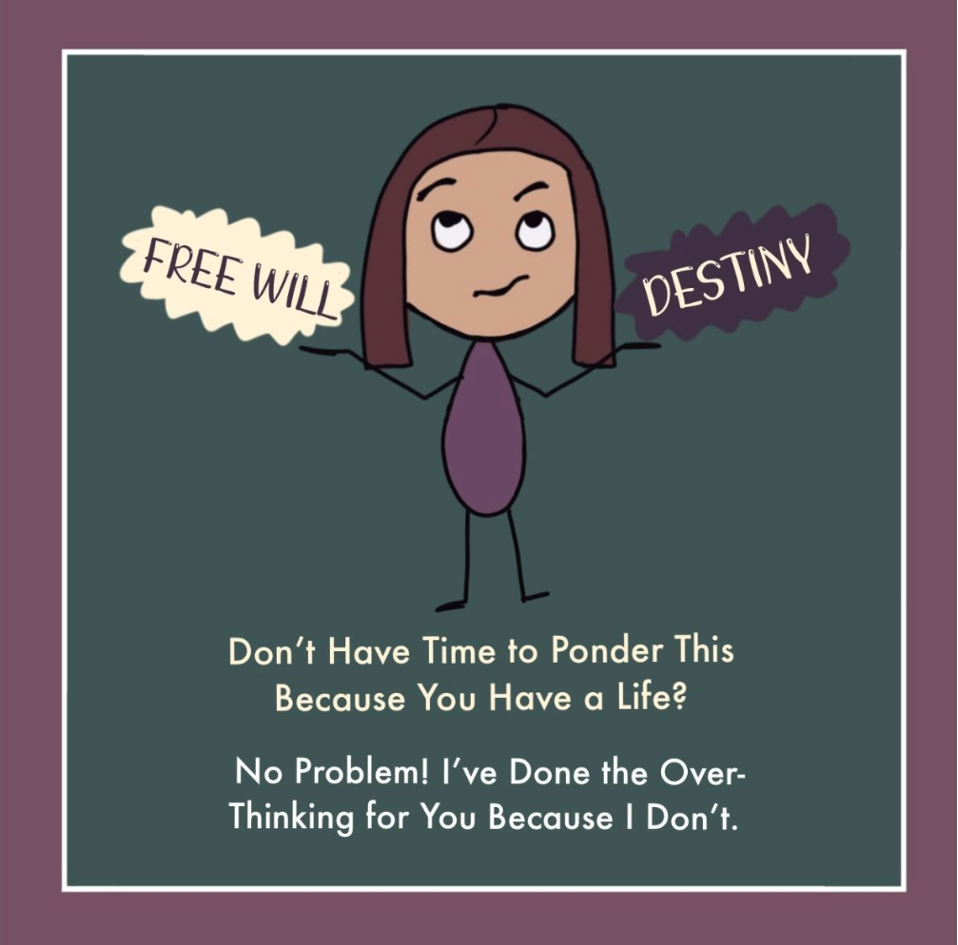
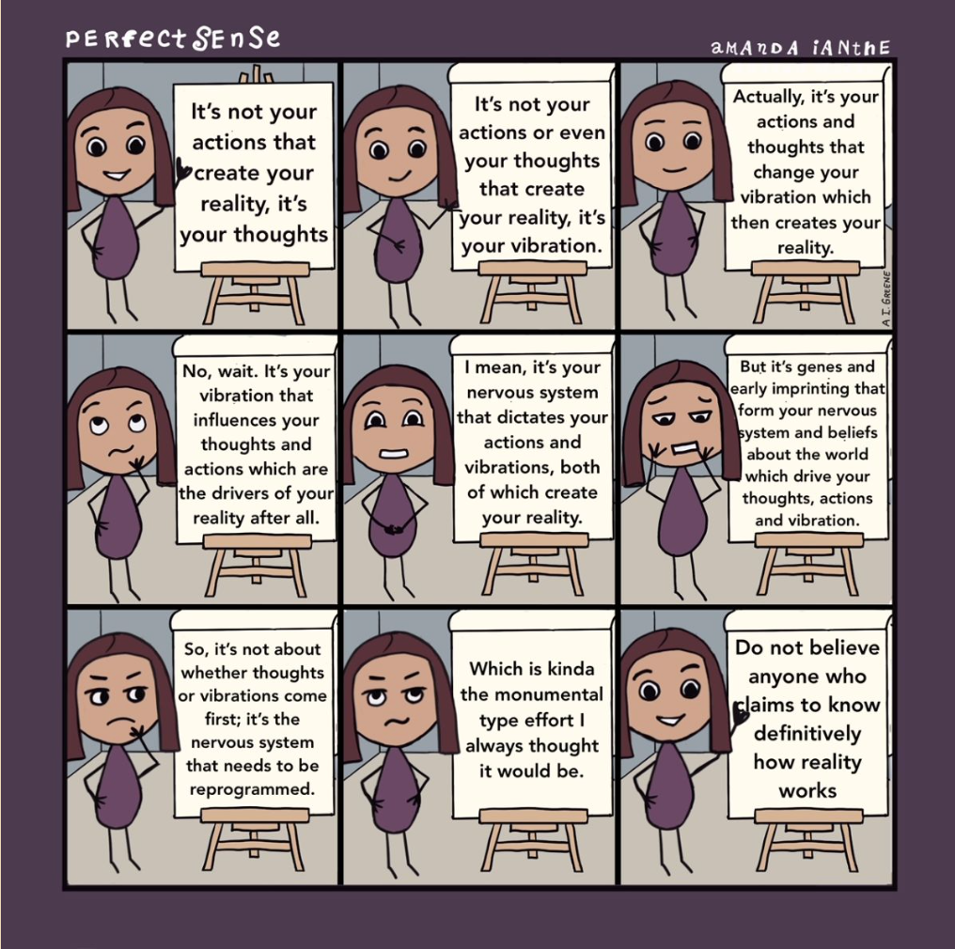
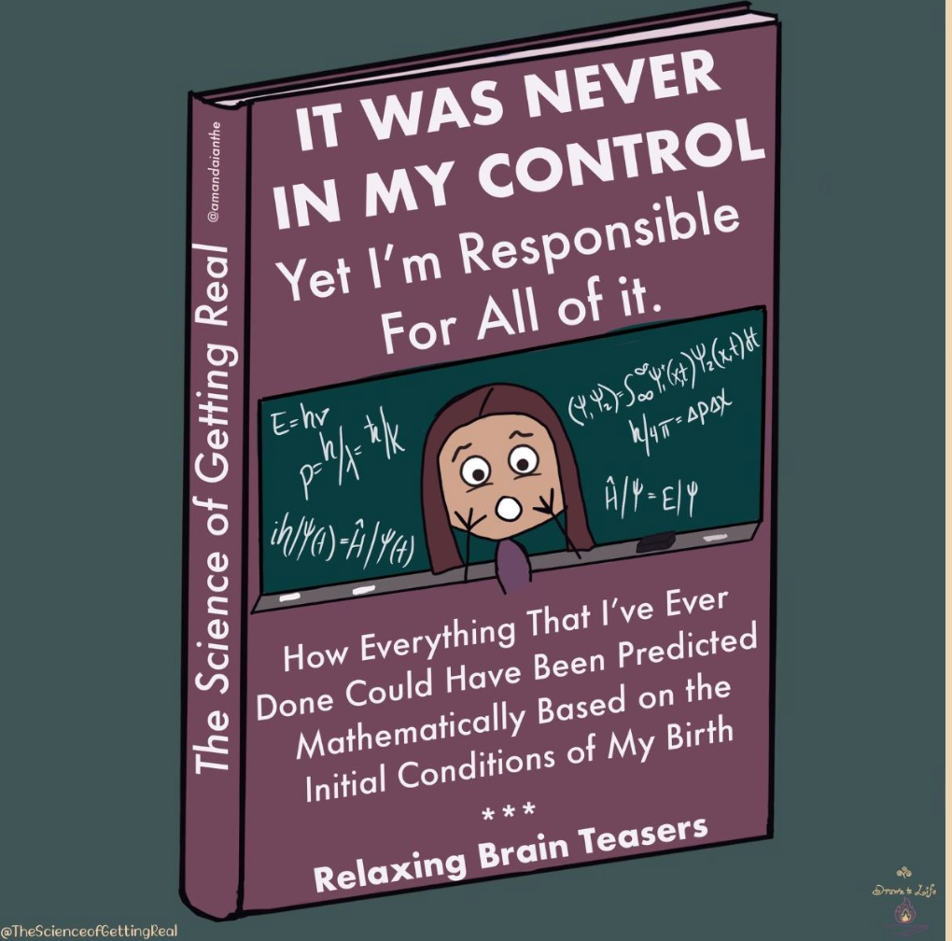
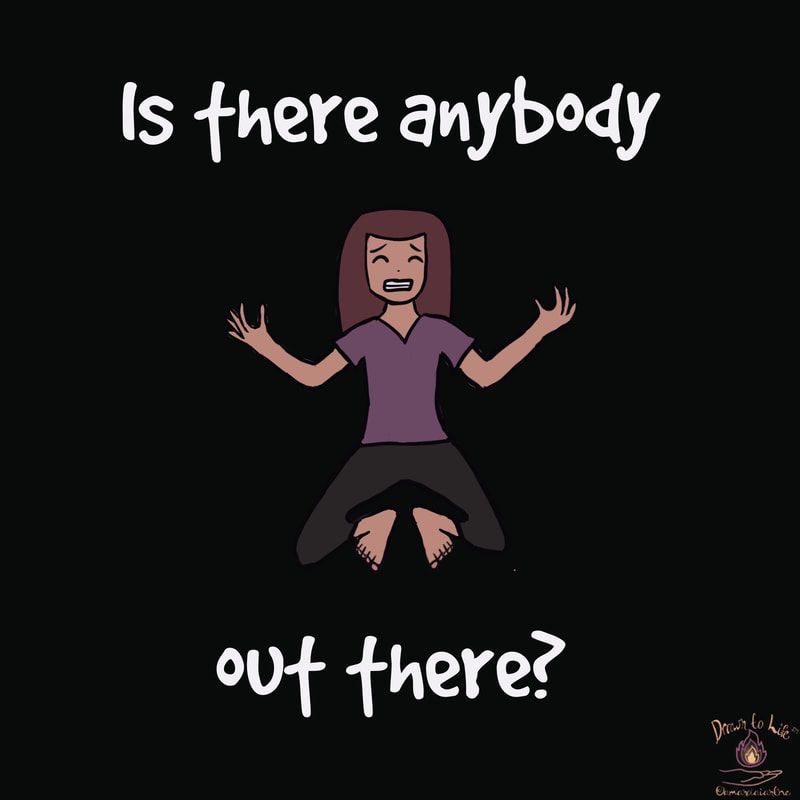
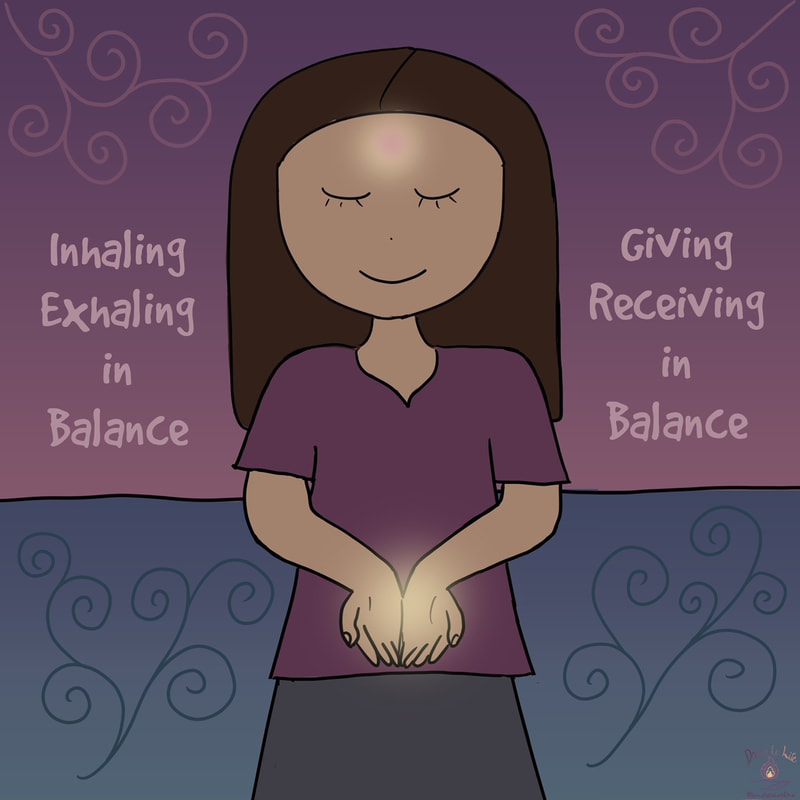
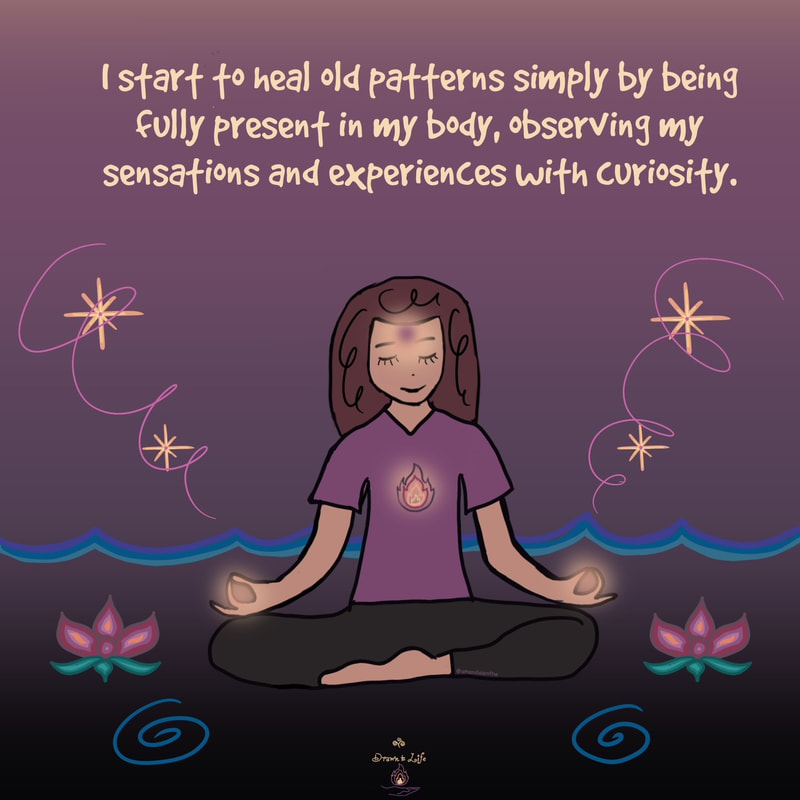
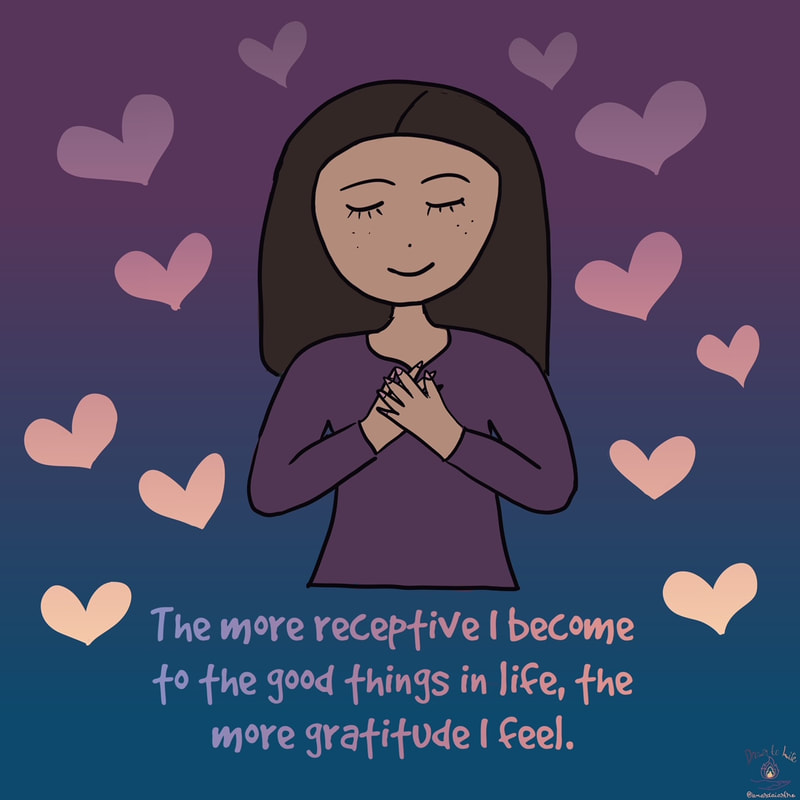
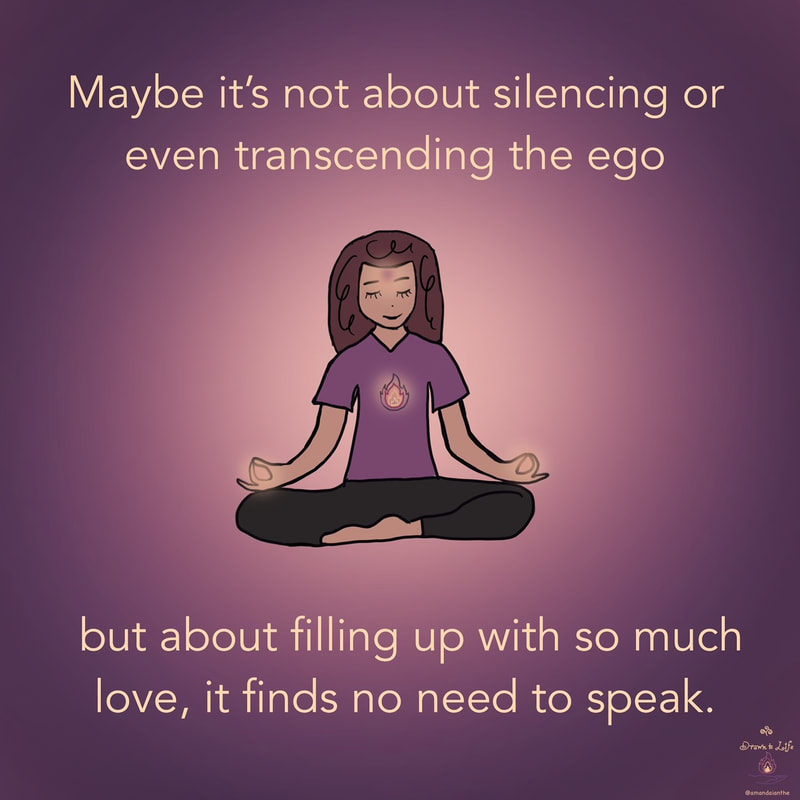
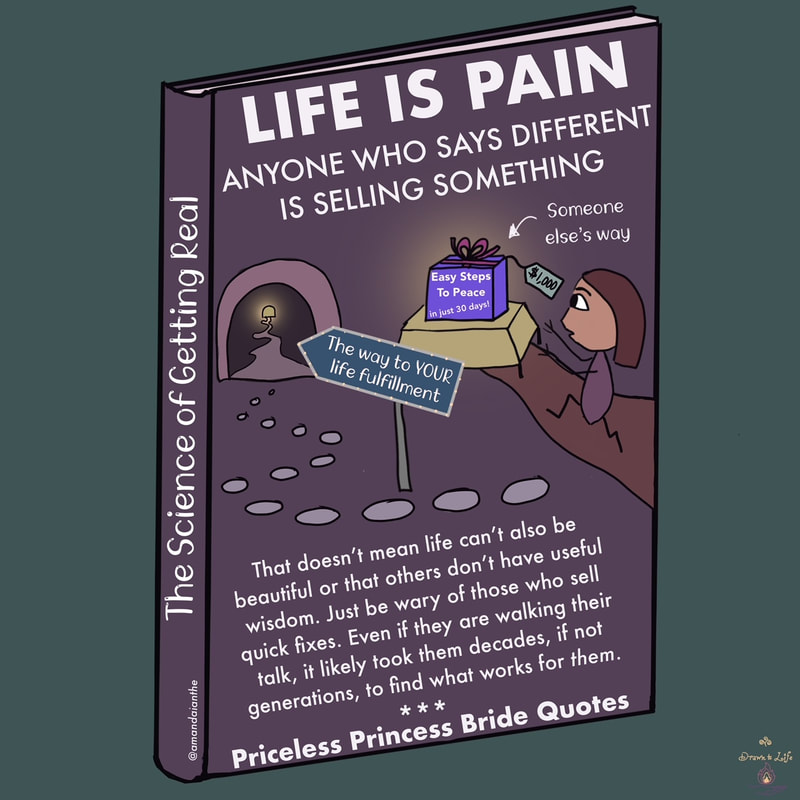
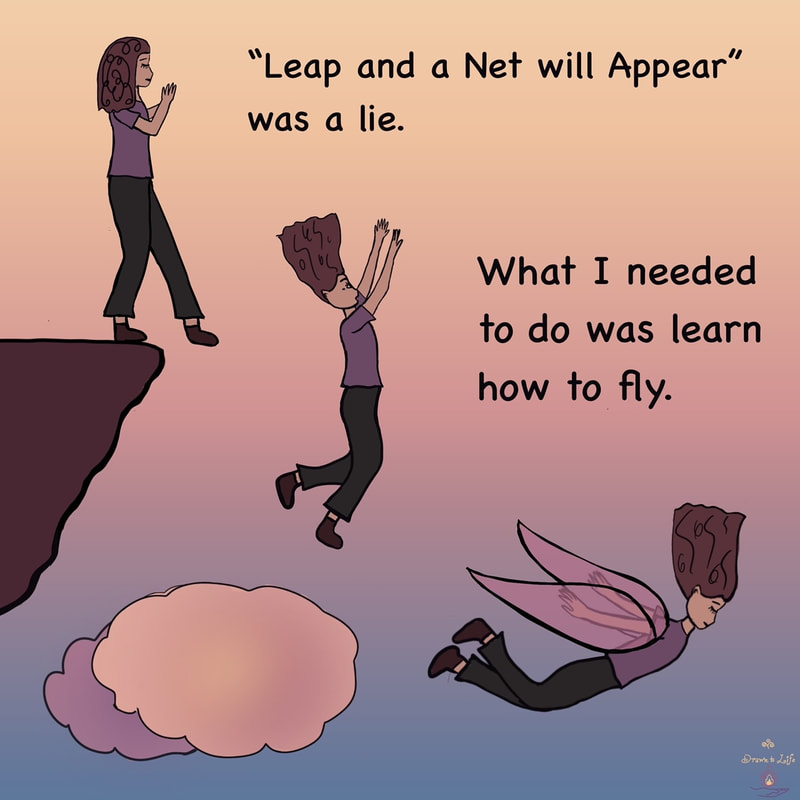
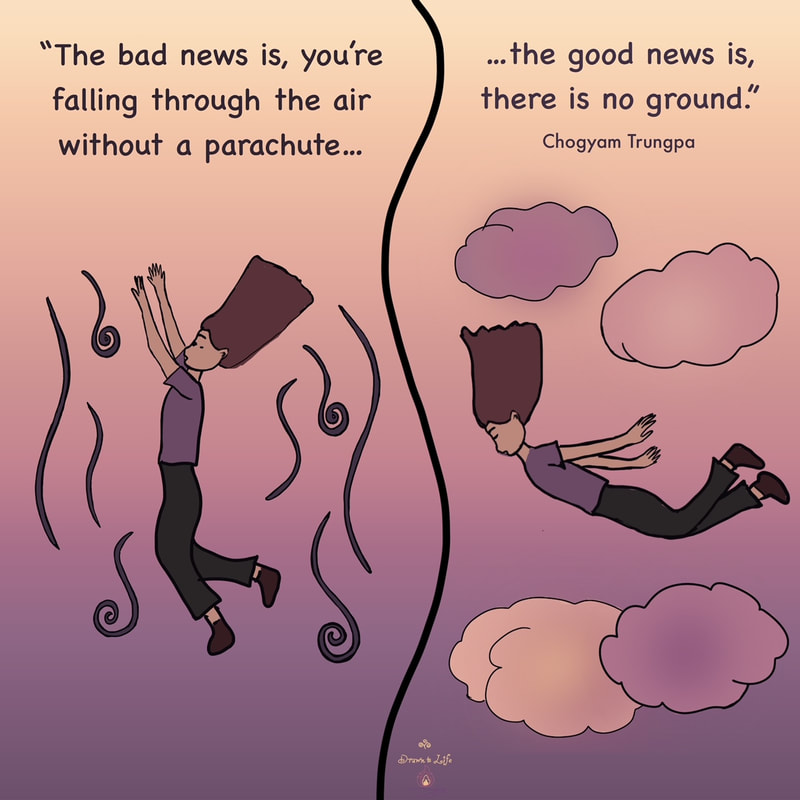
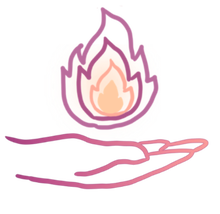
 RSS Feed
RSS Feed